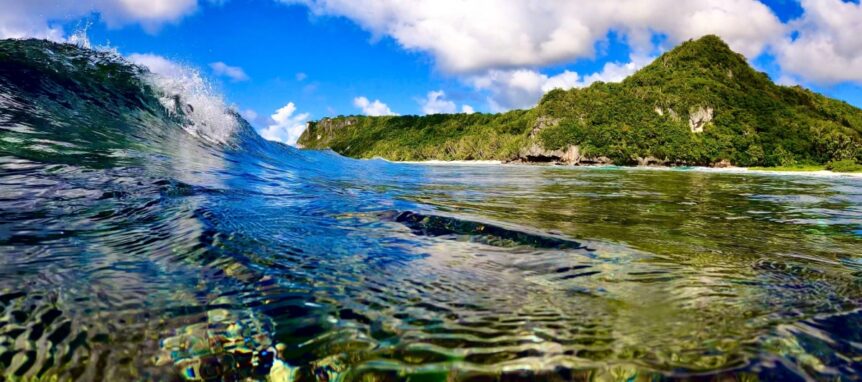Half an ocean away in the Western Pacific lies Guam, the largest and southernmost island in the Marianas Archipelago. Its location makes it one of the most strategically important U.S. bases in the region, serving as the forward line of defense in the Pacific. Today, nearly 29% of Guam’s land is occupied by U.S. military installations, underscoring its role in national security.
A Brief History of Guam
Guam’s history stretches back thousands of years, with the indigenous Chamorro people inhabiting the island as early as 2,000 B.C. The island was “discovered” by Ferdinand Magellan in 1521 and later claimed by Spain in 1565. For centuries, it served as a vital stopover for ships traveling between Mexico and the Philippines.
Spain colonized Guam in 1668, introducing Catholicism and leaving behind cultural and architectural remnants that still exist today. After the Treaty of Paris ended the Spanish-American War in 1898, Guam became a U.S. territory, and the first American military presence followed shortly thereafter with the establishment of a Navy yard in 1899.
During World War II, Guam was invaded by Japan on December 8, 1941, just one day after the attack on Pearl Harbor. Following a 31-month occupation, U.S. forces retook the island in the summer of 1944. Liberation Day is still celebrated every July 21 to commemorate this victory. The island’s role in World War II was pivotal, as Seabees constructed five airfields from which B-29 bombers launched attacks on Japan and the Pacific theater.
Military Presence on Guam Today
Guam remains a critical hub for U.S. defense operations. The Joint Region Marianas installation is the westernmost base of the Navy’s Pacific Fleet, earning it the title “Guardian of the Pacific.” The island hosts Navy and Air Force personnel, including the 36th Wing and the 734th Air Mobility Support Squadron at Andersen Air Force Base.
Currently, there are about 5,500 active duty personnel on Guam, primarily Navy and Air Force, with a smaller Marine contingent providing base security. Plans have been proposed to relocate approximately 5,000 Marines from Okinawa to Guam, which, if implemented, would significantly increase both military activity and civilian contracting opportunities.
Civilian Contractors on Guam
Civilian contractors play an essential role in maintaining Guam’s military readiness. Contracting jobs include engineering, weapons maintenance, mission-critical support services, base logistics, cleaning, food services, and other daily operations. The potential for additional troops in the future could expand the demand for these services even further.
While Guam offers a unique opportunity for contract workers, it also presents risks. Injuries can occur in construction, maintenance, and service roles, as well as during off-duty activities tied to the obligations of working in such a remote, strategic location.
Defense Base Act Protection and the “Zone of Special Danger”
Civilian employees working for U.S. contractors on Guam are not covered by state workers’ compensation laws. Instead, they are protected under the Defense Base Act (DBA), a federal extension of the Longshore and Harbor Workers’ Compensation Act. This law provides medical benefits, wage replacement, and compensation for families in the event of injury or death.
Guam has played a central role in shaping DBA case law. One of the most significant doctrines to emerge here is the “Zone of Special Danger.” Under this principle, injuries do not always need to occur while directly on the job to qualify for compensation. If the conditions of employment, such as being stationed in a remote or hazardous area, contribute to the injury—even during recreational activities—the DBA may still apply.
What To Do If You Were Injured in Guam
If you were injured while working for a U.S. contractor or military support organization on Guam, you may be entitled to compensation under the Defense Base Act. The claims process is complex, with strict time limits and detailed regulations, and mistakes can easily put your benefits at risk.
At Barnett, Lerner, Karsen & Zobec, P.A., our attorneys have the knowledge, skill, and dedication needed to guide you through the DBA process. We are committed to protecting your rights and zealously advocating for the benefits you and your family deserve.

